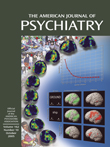Relationship Between Duration of Untreated Psychosis and Outcome in First-Episode Schizophrenia: A Critical Review and Meta-Analysis
Abstract
OBJECTIVE: The duration of untreated psychosis may influence response to treatment, reflecting a potentially malleable progressive pathological process. The authors reviewed the literature on the association of duration of untreated psychosis with symptom severity at first treatment contact and with treatment outcomes and conducted a meta-analysis examining these relationships. METHOD: English-language articles on duration of untreated psychosis published in peer-reviewed journals through July 2004 were reviewed. Studies that quantitatively assessed the duration of untreated psychosis; identified study subjects who met the criteria for nonaffective psychotic disorders at or close to first treatment; employed cross-sectional analyses of duration of untreated psychosis and of baseline symptoms, neurocognition, brain morphology, or functional measures or prospectively analyzed symptom change, response, or relapse; assessed psychopathology with clinician-rated instruments; and reported subjects’ diagnoses (a total of 43 publications from 28 sites) were included in the meta-analysis. RESULTS: Shorter duration of untreated psychosis was associated with greater response to antipsychotic treatment, as measured by severity of global psychopathology, positive symptoms, negative symptoms, and functional outcomes. At the time of treatment initiation, duration of initially untreated psychosis was associated with the severity of negative symptoms but not with the severity of positive symptoms, general psychopathology, or neurocognitive function. CONCLUSIONS: Duration of untreated psychosis may be a potentially modifiable prognostic factor. Understanding the mechanism by which duration of untreated psychosis influences prognosis may lead to better understanding of the pathophysiology of schizophrenia and to improved treatment strategies.



